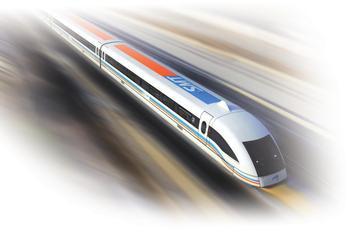This multifunctional blender is a versatile kitchen appliance designed to mix, blend, and emulsify food and other substances. It features a powerful motor that can crush ice, chop fruits, and blend soups and smoothies with ease. The blender comes with multiple speed settings that allow you to control the texture and consistency of your food. It also includes a pulse function for quick and efficient blending. The blender's jar is made of high-quality, durable glass that is resistant to scratches and stains. The blender is also equipped with a safety lock feature to ensure safe operation. Additionally, it is easy to clean and maintain, making it a convenient and practical addition to any kitchen.
multifunctional blender machine,high speed blenders,blenders professional,commercial blenders Heshan Zilong Home Appliance Technology CO.Ltd , https://www.techonelfoodmixer.com “36 cities have already approved the establishment of rail transit, and by 2020 China's rail transit will reach a scale of nearly 6,000 kilometers, and investment in rail transit will reach 4 trillion yuan.†former chief engineer of the Ministry of Railways, China Railway Construction Hua Maokun, president of the New Technology Promotion Association, stated at the 2nd China Railway Industry Summit Forum.
“36 cities have already approved the establishment of rail transit, and by 2020 China's rail transit will reach a scale of nearly 6,000 kilometers, and investment in rail transit will reach 4 trillion yuan.†former chief engineer of the Ministry of Railways, China Railway Construction Hua Maokun, president of the New Technology Promotion Association, stated at the 2nd China Railway Industry Summit Forum.
Li Guoyong, the inspector of the National Development and Reform Commission’s Basic Department, recently stated that by 2015, the mileage of China’s rail transit will reach more than 3,000 kilometers, and that during the “Thirteenth Five-Year Plan†we will also increase by 3,000 kilometers, that is, by 2020, it will reach 6,000 kilometers. Our approximate investment will require 3 trillion to 4 trillion yuan.
Rail transit is a collective term for subway, light rail, tram and other transportation methods, and having a subway is a dream for many second- and third-tier cities. However, in accordance with the “Circular of the State Council on Strengthening the Management of Urban Rapid Rail Transit Construction†promulgated in 2003, the number of cities in metropolitan development should be more than 3 million. The general budget revenue of local finance should be more than 10 billion yuan. To reach 100 billion yuan or more, the passenger flow on the planned route has reached a one-way peak of more than 30,000 per hour.
The "one size fits all" approach of using the three provisions is criticized. Some cities have required fiscal revenue and GDP, and they have money to invest in subway projects. However, passenger traffic has not yet reached the requirements and cannot be repaired in accordance with regulations. On May 13, Premier Li Keqiang of the State Council pointed out at the National Video and Telephone Conference that it is necessary to re-deploy to the localities certain matters that require approval but more convenient and effective investment examination and approval by local governments, as well as the examination and approval of production and business activities that are widely used.
With the decentralization of approval power, rail transit will usher in a construction boom for a long time to come. At present, cities such as Nantong, Tangshan, Luoyang, Yantai, Baotou and Hohhot are also actively preparing for construction of urban rail transit.
According to statistics from the National Development and Reform Commission, in 2012, the national urban rail transit industry completed nearly 190 billion yuan in investment in fixed assets, an increase of 17% over 2011, and it is second only to railways and highways in the transportation sector. By the end of 2012, there are 17 cities in China with completed mileage of 2077 km. There are currently 27 cities with rail transit projects under construction, 2100 km of projects under construction, and a total investment of 1.23 trillion yuan. The investment will reach 220 billion yuan, an increase of 40 billion yuan over the previous year. The mileage to be put into operation this year will be 290 kilometers. By the end of this year, 19 cities in our country will have subways and the total mileage will reach 2,366 kilometers.
Li Liancheng, director of the Transport Economics and Technology Research Office of the Institute of Integrated Transportation Development and Reform Commission, told the reporter of the Economic Information Daily that after the decentralization of the review and approval authority, whether or not the upsurge of rail transit construction can be induced depends on the availability of funds, “because it has plagued rail transit construction. The fundamental problem is funding. If the local government has the conditions for the development of rail transit, it will solve the problem of funds. After the decentralization of the examination and approval authority, it will speed up the development of rail transit; if the local funds cannot be solved, even if the approval authority is devolved, the project will not be discontinued. ."
Li Guoyong believes that local governments are highly motivated to build rail transit, and there are still signs of disregarding actuality and excessive advancement in some localities. If regulatory measures cannot be put in place during the implementation of the plan, investment impulses will be easily generated, and unlicensed construction and centralized construction will occur. , as well as any irregularities in the construction plan.